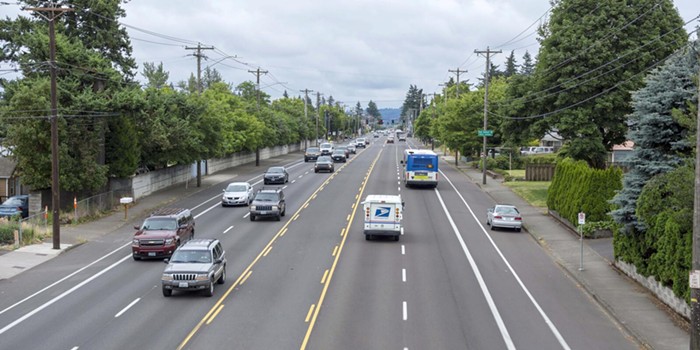
A new coalition of more than 40 organizations is calling for progress on Oregon’s long history with non-unanimous jury convictions.
Between 1934 until 2020, split-jury convictions—in which only 10 out of 12 jurors’ “guilty” vote is required to convict someone of a felony, rather than a unanimous vote—were permissible in Oregon courtrooms. That changed last April, when the United States Supreme Court ruled the practice was unconstitutional. Oregon, the only remaining state in the country to allow non-unanimous convictions, was forced to change course moving forward after that ruling in Ramos v. Louisiana. But the majority of Oregonians who had already been convicted by a split jury faced an uncertain future, unsure if the Ramos ruling would be applied to their cases as well.
That question is still up in the air. While split-jury defendants who were still in the formal appeals process during the time of the Ramos ruling have been granted a new trial, those who had already completed their appeals were left to request post-conviction relief, meaning they are petitioning the state to have their cases reversed—or at least retried—after the fact. Oregon Attorney General Ellen Rosenblum, who heads the state’s Department of Justice, has said she wants the state courts to decide the issue. That means she won’t use her authority as the state’s top lawyer to push for those Oregonians to receive post-conviction relief.
In the meantime, at least hundreds of Oregonians remain in prison on a non-unanimous conviction, despite the Supreme Court’s finding that their convictions were inherently unconstitutional. Hundreds more have served their time and left prison, but still face the challenges that come with having a felony record.
That’s where the “Still In Prison” coalition comes in. Boasting 43 members ranging from Don’t Shoot Portland and the Oregon Justice Resource Center to Businesses for a Better Portland and Clackamas County Democrats, the coalition is calling for Rosenblum to act on the issue.
“We are asking that the Oregon Attorney General use her discretion and authority to concede, in other words, ‘agree’—or, at the least, stop actively fighting and opposing—petitions from Oregonians requesting that their non-unanimous convictions that are past appeal be sent back to Oregon’s circuit/trial courts for retrial,” said Sandy Chung, executive director of the ACLU of Oregon, a member of the coalition.
“There is nothing legally that requires the Oregon Attorney General to oppose these petitions,” Chung continued in an email to the Mercury. “We are asking her to do her part and to stop opposing these petitions so that Oregon can proceed with addressing the harms created by non-unanimous jury convictions. We are asking that she give people an opportunity to have a fair and constitutional trial.”
Chung added that there is a precedent for Rosenblum taking a stand that technically went against existing Oregon law. In 2014, Rosenblum refused to defend Oregon’s then-current ban on same-sex marriages in court “because she knew defending the law was wrong,” Chung said.
“Now, she should do justice by refusing to defend Oregon’s unconstitutional convictions by non-unanimous juries,” Chung added.
In March, a spokesperson for Rosenblum told the Mercury that Rosenblum believes “the [state] courts will decide whether the law supports granting post-conviction relief based on Ramos, not the Attorney General.”
The formation of the “Still In Prison” coalition is just the latest push in a heated campaign to overturn past non-unanimous convictions in Oregon. In March, international human rights organization Human Rights Watch pleaded with Rosenblum to stop opposing the non-unanimous convictions’ reversals in an open letter. Just this week, Chelsea Clinton has taken up the cause on Twitter, bringing new attention to the issue:
Today, state leaders should be taking every opportunity to use their power to end systemic racism. It is not enough to denounce it when you have the power to end it. Oregon's AG Ellen Rosenblum @ORDOJ has the power to topple a racist law. And she must. pic.twitter.com/lb16vETRBS
— Chelsea Clinton (@ChelseaClinton) May 3, 2021
An online petition created by Still in Prison coalition members Color of Change and ACLU of Oregon has collected over 30,000 signatures as of Thursday. The petition refers to the 1934 law that legalized split-jury convictions in Oregon, which was born out of xenophobic sentiment, as a “KKK-era law.” In an email to the Mercury, the ACLU’s Chung also brought up the convictions' disproportionate impact on Black and brown people, and pledged to keep the pressure on to get post-conviction relief granted to those Oregonians.
“We believe that we are doing what is right, just, and decent,” Chung wrote, “and we will continue to work with the Still in Prison coalition until we achieve our goal of justice for any Oregonian convicted by a non-unanimous jury conviction: the opportunity to have their conviction vacated and a new trial held if they choose.”



















